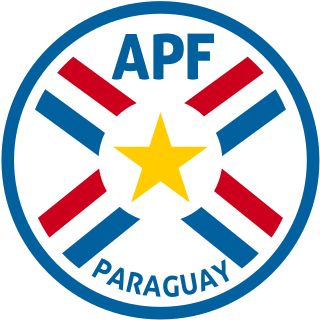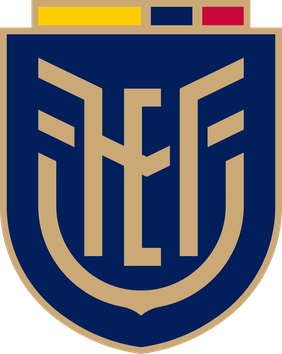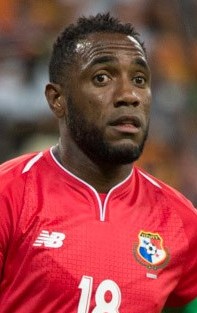Related Research Articles

The 1962 FIFA World Cup was the 7th edition of the FIFA World Cup, the quadrennial international football championship for senior men's national teams. It was held from 30 May to 17 June 1962 in Chile. The qualification rounds took place between August 1960 and December 1961, with 56 teams entering from six confederations, and fourteen qualifying for the finals tournament alongside Chile, the hosts, and Brazil, the defending champions.

The Colombia national football team, nicknamed Los Cafeteros, represents Colombia in men's international football and is managed by the Colombian Football Federation, the governing body for football in Colombia. They are a member of CONMEBOL and are currently ranked 9th in the FIFA World Rankings. The team are nicknamed Los Cafeteros due to the coffee production in their country. The national team has been a symbol of nationalism, pride and passion for many Colombians worldwide. Colombia is known for having a passionate fan base, and the team's dances during goal celebrations have been symbolic.

The Chile national football team, nicknamed La Roja, represents Chile in men's international football competitions and is controlled by the Federación de Fútbol de Chile which was established in 1895. Chile has appeared in nine World Cup tournaments and were hosts of the 1962 FIFA World Cup where they finished in third place, the highest position the country has ever achieved in the World Cup.

The Paraguay national football team, nicknamed La Albirroja, represents Paraguay in men's international football competitions, and are controlled by the Paraguayan Football Association. Paraguay is a member of CONMEBOL. The Albirroja has qualified for eight FIFA World Cup competitions, with their best performance coming in 2010 when they reached the quarter-finals. A regular participant at the Copa América, Paraguay have been crowned champions of the competition on two occasions. Paraguay's highest FIFA World Rankings was 8th and their lowest was 103. Paraguay was awarded second place with Best Move of the Year in 1996 for their rise in the FIFA Rankings.

The Peru national football team, nicknamed La Blanquirroja, represents Peru in men's international football. The national team has been organised, since 1927, by the Peruvian Football Federation (FPF). The FPF constitutes one of the ten members of FIFA's South American Football Confederation (CONMEBOL). Peru has won the Copa América twice, and has qualified for the FIFA World Cup five times ; the team also participated in the 1936 Olympic football competition and has reached the semi-finals of the CONCACAF Gold Cup. The team plays most of its home matches at the Estadio Nacional in Lima, the country's capital.

The Bolivia national football team, nicknamed La Verde, has represented Bolivia in international football since 1926. Organized by the Bolivian Football Federation (FBF), it is one of the ten members of FIFA's South American Football Confederation (CONMEBOL).

The Ecuador national football team, nicknamed La Tricolor, represents Ecuador in men's international football and is controlled by the Ecuadorian Football Federation (FEF). They joined FIFA in 1926 and CONMEBOL a year later.

Luis Carlos "Matador" Tejada Hansell was a Panamanian professional footballer who played as a striker. A journeyman player, Tejada represented over 15 different football clubs in his career. He represented the Panama national team 108 times, appearing at the 2018 FIFA World Cup in Russia.

Faryd Camilo Mondragón Alí is a Colombian retired professional footballer who played as a goalkeeper.
Below are the squads for the 1962 FIFA World Cup final tournament in Chile. Switzerland (3), England (1), Spain (1) and West Germany (1) had players representing foreign clubs.

Juan Carlos Arce Justiniano is a Bolivian professional footballer who plays as a forward or winger for Blooming and the Bolivia national team.
The South American zone of 2010 FIFA World Cup qualification saw ten teams competing for places in the finals in South Africa. The format is identical to that used for the previous three World Cup qualification tournaments held by CONMEBOL. Matches were scheduled so that there were always two games within a week, which was aimed at minimizing player travel time, particularly for players who were based in Europe.

Fernando José Riera Bauzá was a Chilean professional football player and manager, patriarch of Chilean football.
Juan Carlos Sarnari was an Argentine footballer who played as a midfielder. He scored 29 goals in the Copa Libertadores, making him the 6th-highest scoring player in Copa Libertadores history.

Macnelly Torres Berrío is a former Colombian footballer former professional footballer who played mainly as an attacking midfielder.

Luis Carlos Ovalle Victoria is a Panamanian footballer who plays as a left-back for Sporting San Miguelito.
The history of the Colombia national football team dates back to 1924, with the founding of the Colombian Football Federation. The Colombia national football team has had five entries in the tournament World Cup from 1962 onwards. Colombia hosted the 2001 Copa América, in which they were champions.

The 2015 South American Under-17 Football Championship was the 16th edition of the biennial international youth football tournament organized by CONMEBOL for players aged 17 and below. It was held in Paraguay from 4 to 29 March 2015.
The South American section of the 2022 FIFA World Cup qualification acted as qualifiers for the 2022 FIFA World Cup, to be held in Qatar, for national teams which are members of the South American Football Confederation (CONMEBOL). A total of 4.5 slots in the final tournament were available for CONMEBOL teams.
Luis Renato Panay Pérez, known as Renato Panay, was a Chilean football manager.
References
- 1 2 "Falleció Luis Carlos Paz, mundialista con Colombia en Chile-62". El Tiempo . 29 June 2015. Retrieved 22 October 2021.
- ↑ 1962 FIFA World Cup: Colombia Squad FIFA. Retrieved 5 February 2010.
- ↑ "Murió Luis Carlos Paz, el futbolista colombiano más joven en asistir a un Mundial".